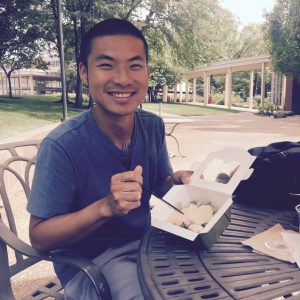Chong Yuan is a Graduate Student in Philosophy at St. Louis University. He describes himself as a “perplexed feminist learning to run”.
Now that you are reading this blog, I assume that you care about virtue, culture, and the interaction between them. If that is the case, I urge you to watch Danqing Chen’s mini TV series “Ju Bu” (Of Parts). It was first aired on Youku.com in 2015, and in each episode Chen presented some artwork (mostly paintings) or artist in the light of his own philosophy of art. The program as a whole is a marvelous display of the virtues of the artworks as well as of the artists, and it is all the more fascinating as Chen drew examples all the time from the histories of both Western and Chinese art.
As I go through the whole series once again, it becomes quite obvious that Chen returns to one topic many times throughout the episodes (sometimes it is the dominating theme and other times he touches upon it): the virtue of youthful adulthood. This is a remarkably versatile concept, for it can be said of an artist, an artwork, or even the zeitgeist of an era. In other words, it can be said of a culture in as many of its embodiment as you are careful enough to discover.
The first episode offers an example of this virtue as embodied in an individual. Chen talked about a piece of traditional Chinese landscape painting by Ximeng Wang from the Song dynasty. The episode is not so much about this painting as it is about the fact that Wang painted that masterpiece at the age of only eighteen. Chen argued that the painting could only be accomplished by the genius Wang at the age of eighteen, not younger nor older, but exactly at eighteen. By the end of the episode Chen even made the outrageously sounding yet wonderfully delicious suggestion that Wang might just be so very conscious of that marvelous fact about himself that he died soon afterwards.
What’s so special about the age of eighteen? According to Chen, in traditional China an early teenager (usually before fourteen) would be selected to be the apprentice of some experienced artisan and be trained in the artistry for a few years. So by the age of eighteen, those with talent and proper guidance would be able to yield products of fairly good quality, while a genius like Wang might just astound you with a masterpiece. In other words, the arrival of adulthood comes so naturally with the maturing of the person’s heart, mind, spirit and overall ability that we might genuinely compare the process to the coming into full bloom of a flower.
I suggest that Wang displayed the virtue of youthful adulthood, which can be characterized as a combination of spiritual vigor and mental maturity that usually emerges with the growth of the body and the mastery of some kind of knowledge or craft. This may sound a bit abstract, but Chen’s rhetorical emphasis on Wang’s age helps pull the audience towards the right kind of imaginative understanding of the virtue I’m struggling to name. If you want to get a more concrete sense of it, I can give no better advice than to go watch the episode.
P.S., For this virtue as embodied in artwork, see the episodes on Van Gogh’s early paintings; and for this virtue as embodied in the culture of an era, see the episodes on Impressionism and Greek sculpture. Of course you would then modify the characterization of the virtue a bit, but I think the underlying conception is more or less the same one.

